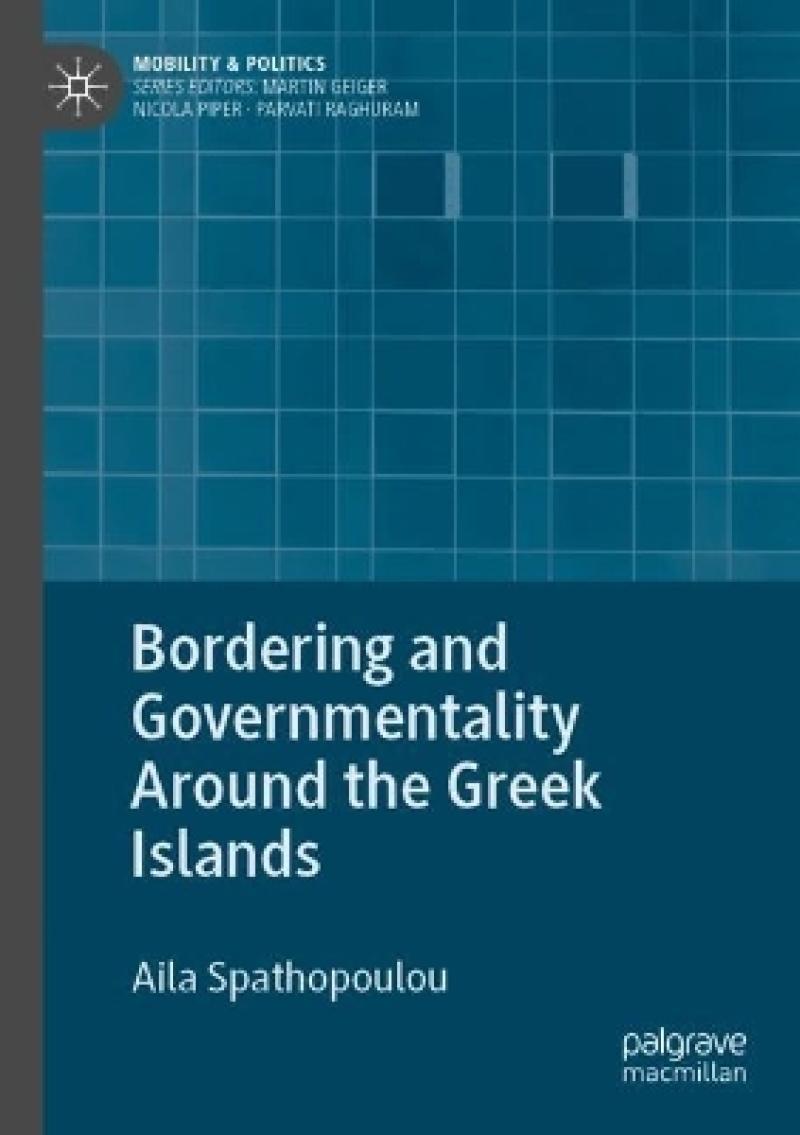This book focuses on processes of bordering and governmentality around the Greek border islands from the declaration of a ‘refugee crisis’ in the summer of 2015 up until the emergence of the Covid-19 pandemic in 2020. The chapters trace the implementation of the EU migration hotspot approach across space and time, from the maritime Aegean border to the islands (Lesvos and Samos) and from the islands to the Greek mainland. They do so through the lenses of peoples’ refusal to succumb to categories that get reified as identities through the hotspot approach, such as that of the ‘deserving refugee’, the ‘undeserving economic migrant’, the ‘translator’, the ‘volunteer’, the ‘tourist’ and the ‘researcher’. This book explores how ‘migration management’ in Greece from 2015-2020, along with the reshaping of space and time, reconfigured peoples’ relationships with one another and ultimately with one’s self.
Les mer
This book focuses on processes of bordering and governmentality around the Greek border islands from the declaration of a ‘refugee crisis’ in the summer of 2015 up until the emergence of the Covid-19 pandemic in 2020.
Les mer
1. Introduction.- 2. From the scene of arrival onto the road: The ‘(mixed) flow’.- 3. From the Olive Grove onto the ferry: The ‘refugee volunteer’.- 4. From the relocation to the vulnerability route: The ‘deserving refugee’.- 5. From ‘self- detention’ to ‘self-deportation’: The underserving ‘economic migrant’.- 6. From humanitarian-bordering work to ‘incomplete’ translation: The ‘cultural mediator’.- 7. From to ‘integration’ to closed hotspots: The ‘migrant’.- 8. Conclusion.
Les mer
This book focuses on processes of bordering and governmentality around the Greek border islands from the declaration of a ‘refugee crisis’ in the summer of 2015 up until the emergence of the Covid-19 pandemic in 2020. The chapters trace the implementation of the EU migration hotspot approach across space and time, from the maritime Aegean border to the islands (Lesvos and Samos) and from the islands to the Greek mainland. They do so through the lenses of peoples’ refusal to succumb to categories that get reified as identities through the hotspot approach, such as that of the ‘deserving refugee’, the ‘undeserving economic migrant’, the ‘translator’, the ‘volunteer’, the ‘tourist’ and the ‘researcher’. This book explores how ‘migration management’ in Greece from 2015-2020, along with the reshaping of space and time, reconfigured peoples’ relationships with one another and ultimately with one’s self.Aila Spathopoulou is Assistant Professor (Research) in theDepartment of Geography at Durham University, UK. She is also co-coordinator of the Research Area ‘Mobility: Migration and Borders’ at the Feminist Autonomous Centre for Research (Athens). She holds a PhD in Geography from King's College London and has published her research in peer reviewed journals.
Les mer
Shows that the hotspot is not a static institutional space confined to the Reception and Identification Centres Focuses on how the ‘hotspot’ is encountered through the resistance of the people whom it targets Engages in a critical and empirical analysis of movement in order to understand how time becomes violent
Les mer
Produktdetaljer
ISBN
9783031085918
Publisert
2024-01-03
Utgiver
Vendor
Palgrave Macmillan
Høyde
210 mm
Bredde
148 mm
Aldersnivå
Research, P, 06
Språk
Product language
Engelsk
Format
Product format
Heftet
Forfatter
Biographical note
Aila Spathopoulou is Assistant Professor (Research) in the Department of Geography at Durham University, UK. She is also co-coordinator of the Research Area ‘Mobility: Migration and Borders’ at the Feminist Autonomous Centre for Research (Athens). She holds a PhD in Geography from King's College London and has published her research in peer reviewed journals.
